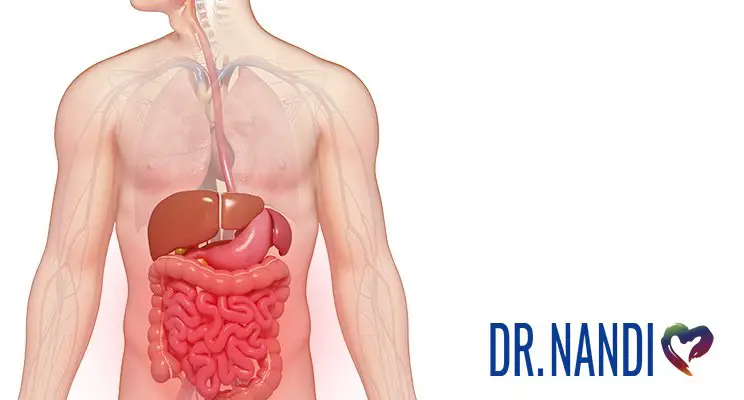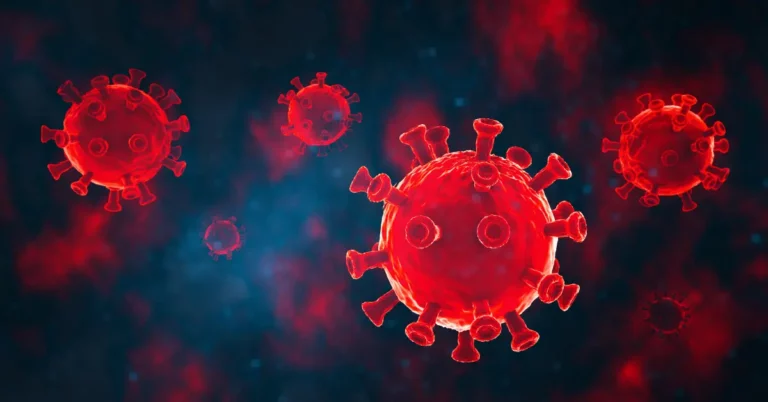So many of my patients struggle with Gastroesophageal reflux disease (GERD). According to statistics, 20% of the U.S. population suffers from diagnosed GERD, with upwards of 40% complaining of Gerd-like symptoms at least once a month. (1,2) This chronic condition causes daily heartburn, acid reflux, and other frustrating symptoms. Although not a life-threatening condition in most cases, GERD can cause serious problems if left untreated. There are many conventional and natural treatments for GERD. Most of my patients use short-term drug therapy and long-term lifestyle changes. With knowledge and committed action, I believe most people can overcome symptoms of GERD and live a healthy life free of heartburn and other obnoxious symptoms.
What Is Gastroesophageal Reflux Disease (GERD)?
Gastroesophageal reflux disease (GERD) happens when acid and other contents from the stomach frequently come up into your esophagus, irritating the sensitive esophageal lining. GERD is different from occasional heartburn or indigestion as it is chronic and happens at least twice a week and multiple times a day for some people.
Symptoms Of GERD
- Acid indigestion
- Heartburn
- Painful burning sensations in the throat/chest
- Bad breath
- Tooth erosion
- Abdominal pain
- Chest pain
- Asthma symptoms (wheezing, difficulty breathing, especially during exercise)
- Belching
- Bloating
- Regurgitation
- Excessive saliva
- Hoarseness
- A sour taste in the mouth
Are GERD Symptoms Constant?
If you have true GERD and not just irregular heartburn/indigestion, you will experience several symptoms of GERD daily or several times a week. If this is the case, I would recommend scheduling an appointment with your doctor so that you can come up with a plan that best meets your unique situation and needs. There are many things you can do to help relieve symptoms of GERD. You don’t need to suffer long-term.
GERD vs. Acid Reflux/Silent Reflux
Acid reflux and GERD are similar but don’t necessarily mean the same thing. When you experience acid reflux, regurgitated food or sour liquid from your stomach flows up into your esophagus, causing heartburn or pain in the throat. Most people experience this occasionally due to spicy food or abnormal movement after eating (laying down immediately or the head being slanted downward). GERD is a disease where acid and contents from the stomach come up frequently. It can damage the sensitive lining of the esophagus and cause many other symptoms besides heartburn (listed above).
Who Is At Risk For GERD?
Several factors may contribute to one developing GERD. Anyone can develop this condition, including men, women, infants, and children. Following are the most common underlying problems that lead to a GERD diagnosis:
Untreated Food Allergies
A food sensitivity, intolerance, or allergy that goes untreated for a long period leads to poor gut health, developing into Leaky Gut Syndrome or IBS. As stated previously, these disorders are commonly associated with GERD.
Hiatal Hernias
The hiatus is between the diaphragm and the abdomen, where air can pass. Esophageal tubes connect the stomach to the mouth through this opening. A hiatal hernia causes the stomach to bulge into the chest, making heartburn very bad.
Obesity
A large belly has been shown to cause or worsen heartburn and GERD. (8) A 2006 study found that even relatively small weight changes can increase the severity of acid reflux disease and the risk for complications. (13) This is thought to be because excess weight puts additional pressure on the abdominal region, making acid leakage more likely. Obesity may also cause inflammation in the body, associated with GERD symptoms.
Inflammation
Medical professionals blame excessive acid production in the stomach and acid reflux as the only causes of GERD. New research has found that while excess acid production does play a role, chronic inflammation may also be a major contributor to the disease. (7) Although inflammation in moderate amounts is healthy and appropriate, sometimes the body gets “stuck in high gear,” either because it failed to eliminate whatever was causing acute inflammation or because of an autoimmune disorder. When this happens, inflammation becomes chronic and can lead to various health issues and symptoms, including GERD.
Physical and Emotional Stress
Chronic stress leads to inflammation which leads to chronic disease. Too much stress contributes to poor sleep, weight gain, and poor nutritional choices. A 2009 study involving over 40,000 Norwegians found that people with more work-related stress were more likely to develop GERD symptoms. (14)
Sedentary Lifestyle
Studies have found that a sedentary lifestyle, obesity, and acid reflux are linked to GERD and more GERD-related complications in the elderly. (9)
Smoking Cigarettes
Nicotine relaxes the ring of muscle in the lower esophagus that is responsible for keeping acid in the stomach, thus making it easier for said acid to travel up into the throat.
A Diet High In Acidic, Processed and Refined Foods
Many foods in the Standard American Diet aggravate the digestive system. Overconsumption of these foods, for many people, eventually leads to digestive issues, including acid reflux and GERD.
Foods That Aggravate GERD
- Caffeine. Caffeinated drinks irritate the esophagus and weaken the esophageal sphincter.
- Alcohol. Especially when consumed close to bedtime, alcohol often contributes to symptoms of GERD.
- Spicy foods. Spicy foods are a big culprit for many of my patients with acid reflux. Avoid spicy foods until your symptoms improve.
- High-sodium foods. Like processed foods and fast foods.
- Fatty and fried foods.
- Citrus.
- Chocolate. An ingredient in chocolate called theobromine relaxes the esophageal sphincter and increases reflux.
- Foods you are allergic to. I suggest working with your doctor to determine foods you may be sensitive to/intolerant to remove them from your diet. These may include processed dairy products, grains, gluten, eggs, nuts, synthetic ingredients, food dyes, etc.
Am I At Risk?
If you want more information about GERD and a self-diagnosis quiz designed to help you know if you should bring symptoms up to your doctor, you will soon be able to download my full book: Beating Gerd Naturally Dr. Nandi’s Guide To Managing GERD. This book also contains my full protocol for managing GERD. I always recommend working alongside your dedicated medical professional.
GERD When Pregnant
Pregnant women often have heartburn and GERD-like symptoms that make them feel sick. A lot of things could cause this. There are hormones in your body that slow down your digestive system, including the muscles in your esophagus. As the uterus expands to fit a growing baby, it pushes on the stomach, which may lead to acid being forced up into the throat. Luckily, these symptoms rarely last beyond the first or second trimester and usually disappear entirely once the baby is born.
Treatment For GERD During Pregnancy
For pregnant women experiencing GERD symptoms, I recommend first trying lifestyle changes (listed below). If this doesn’t seem to help and symptoms are severe, I suggest non-prescription medications such:
- Chewable antacids made from calcium carbonate
- Antacids containing magnesium hydroxide or magnesium oxide
When pregnant, it is important to avoid medications containing:
- Aluminum (aluminum hydroxide, aluminum carbonate)
- Aspirin (i.e. Alka-Seltzer, salicylate, acetylsalicylic acid)
If your GERD is severe, ask your doctor if stronger medications are safe.
GERD in Infants and Toddlers
GERD can occur in infants and children due to an immature gastrointestinal tract. Although most babies and children grow out of GERD, the symptoms can be uncomfortable and disrupting while they last.
Common symptoms of GERD in infants and children are:
- Projectile vomiting (more intense than normal baby spit up)
- Persistent cough
- Wheezing
- Difficulty eating (choking, gagging)
- Refusal to eat
- Gas, colicky behavior (especially after feeding)
- Regurgitation and re-swallowing
- Complaining of a sour taste in their mouth (especially in the AM)
- Recurring pneumonia
Most infants with GERD are completely symptom-free by age 1. Only 5% of these babies continue to have symptoms as toddlers. (6)
Treatment For GERD In Infants
Some natural treatments I recommend for infants with GERD symptoms:
- Hold infants upright for 30 minutes after feedings
- Avoid overfeeding
- Burp infants once in the middle of a feeding and again after
If symptoms persist and cause problems with sleep, feeding, and proper growth, I suggest working with the child’s pediatrician to see if medication might be necessary. Over-the-counter and prescription medications to address infant GERD include:
- H2 blockers
- Proton Pump Inhibitors (PPIs)
How Is GERD Treated In Adults?
When choosing a protocol to tackle GERD symptoms, always work with your doctor to help create the best plan for you and your unique situation. Following are some of the most common conventional and non-conventional treatments used to treat GERD. You can download my full book on managing GERD for a more comprehensive guide.
Conventional Treatments for GERD
Antacids
Antacids neutralize the acid in your stomach and may provide fast-acting, temporary relief from occasional heartburn, reflux, and GERD symptoms. Common over-the-counter antacids include:
- Alka-Seltzer
- Alternate
- Amphojel
- Gaviscon
- Maalox
- Milk of Magnesia
- Mylanta
- Rolaids
- Tums
H2 Blockers
Histamine 2 (H2) blockers reduce the amount of acid produced in the stomach. These are taken in the morning with breakfast, at night during dinner, or both. Popular H2 blockers include:
- Famotidine (Pepcid, Pepcid AC)
- Cimetidine (Tagamet, Tagamet-HB)
- Nizatidine (Axid, Axid AR)
- Ranitidine (Zantac, Zantac 75)
Proton Pump Inhibitors
Proton pump inhibitors (PPIs) have revolutionized the treatment of GERD. They are the most effective medication available for healing a damaged esophagus. PPIs work by reducing the amount of acid produced in the stomach. Specifically, they work by blocking an enzyme known as the “proton pump” found in the stomach wall and is involved in producing acid. The pump releases protons into the gastric juices, which become acid. By blocking this enzyme, PPIs decrease the amount of acid produced in the stomach. It lowers the risk of acid spilling out into your food tube, giving your esophagus time to heal.
Popular PPIs include:
- lansoprazole (Prevacid)
- esomeprazole (Nexium)
- omeprazole (Prilosec)
- dexlansoprazole (Dexilant, Kapidex)
- pantoprazole sodium (Protonix)
- rabeprazole sodium (Aciphex)
When GERD Requires Surgery
Although uncommon, some people aren’t helped by medication or lifestyle changes. Some patients cannot tolerate the medicines. They suffer from complications from GERD. In these cases, surgery may be an excellent option to find relief. There are several different types of surgeries that your doctor might consider.
- Fundoplication. It is a standard surgery for severe GERD cases. It essentially tightens the esophageal sphincter and reinforces it using the upper part of the stomach.
- Transoral Incisionless Fundoplication. This procedure creates a small barrier between the stomach and esophagus, making it more difficult for acid to come up. It doesn’t require any incision.
- Stretta Procedure. It is a fairly new procedure that is performed with an endoscope. Radiofrequency energy is delivered and helps to strengthen the muscle at the end of the esophagus, the LES. Also, this muscle has fewer relaxations, decreasing the amount of acid entering the esophagus.
- Bard Endocinch System. It is another procedure that uses an endoscope. Stitches are made in the esophageal tissue, which strengthens the esophageal sphincter.
- Linx surgery. This surgery uses a unique device called a Linx, a ring of tiny magnetic titanium beads. These are wrapped around the esophageal sphincter to strengthen it. The beads are magnetized and move together to keep the opening between the stomach and esophagus closed. Food can still pass through usually.
Surgery is generally considered a last resort for GERD patients and is done only when medication and lifestyle changes don’t work.
Lifestyle Treatments for GERD
It is essential to address your dietary and lifestyle habits with any medical condition. Everything you consume affects your health and well-being. Food can be the most excellent medicine, or it can be poison. Choose what you eat intentionally and with love for your body. Here are some important lifestyle changes if you have GERD or acid reflux.
GERD Diet
Whether you choose to take medications for your GERD symptoms or not, you should focus on changing your diet and lifestyle habits to improve your health. There are some specific guidelines I give to my GERD patients that I will share with you here. For a more comprehensive guide, you will soon be able to download my book: Beating Gerd Naturally- Dr. Nandi’s Guide To Managing GERD.
Eat More Of These:
- Leafy greens
- Vegetables (only raw tomatoes)
- High-quality bone broth
- Ginger and turmeric
- Omega-3 fatty acids
- Lean proteins
- Fruit (except citrus)
Eliminate These:
- Coffee
- Soda
- Energy drinks
- Chocolate
- Fried and fatty foods
- High-fat red meat
- Tomato sauce
- Mint
- Citrus fruits and juices
- Processed dairy
- Spicy foods
- Alcohol
Eat Smaller Meals
Overeating puts more pressure on the stomach and may push acid into the esophagus. Instead of eating 2-3 large meals every day, eat 4-5 smaller meals every three or four hours.
Avoid Nighttime Snacks
Snacks can wreak havoc on your insides if you eat them before bed. The following foods especially contribute to heartburn, indigestion, and acid reflux if consumed late at night:
- High sugar snacks and sweets (cookies, ice cream, candy, juice)
- Greasy, high-trans-fat foods (fried foods, chips, fast food)
- Spicy foods
- Large meals
I suggest eating snacks with a bit of protein and healthy fat, such as vegetables and a healthy dip, fruit, some nuts and seeds, a homemade low-sugar dessert, etc. So for those of you suffering from GERD, please snack during the day. Take a look at our free SuperSnack guide for wonderful ideas!
Maintain A Healthy Weight
In a 2012 study published in the journal Obesity, women who lost just 5 to 10 percent of their body weight and men who shed 10 percent of their body weight experienced a reduction in their GERD symptoms. The more the weight loss, the greater the improvement. (10)
Stop Smoking
Studies have suggested that tobacco smoking may be a risk factor for GERD. (11) Nicotine relaxes the smooth muscle in the body, including the esophageal sphincter, making it easier for acid to travel up from the stomach into the throat. People who smoke are also more likely to have a chronic cough, which puts constant pressure on the respiratory and digestive systems.
Alleviate Stress
In a 2015 study in Internal Medicine, over 12,000 people with GERD said stress was the number-one factor that exacerbated their symptoms. Stress also increases the risk of obesity, inflammation, and other health-damaging conditions that can cause and/or aggravate GERD symptoms.
Heading to the doctor? Take our GERD Doctor Checklist.
Frequently Asked Questions
Will GERD go away?
A. Many of my patients can find relief from GERD after following a personalized protocol, including short-term drug therapy and long-term lifestyle changes.
Will GERD go away on its own?
A. If one doesn’t make lifestyle changes to address GERD symptoms, it is unlikely it will go away on its own. However, with some simple habit changes, and medication for severe cases, most people find long-term relief from GERD.
Can GERD be cured permanently?
A. Although GERD cannot be “cured,” it can be effectively managed and symptoms nearly eliminated with committed action and the help of a professional.
Will GERD cause chest pain?
A. Non-cardiac chest pain is a symptom of GERD. If you have GERD and are experiencing chest pain, it can be due to esophageal spasms resulting from acid damage from reflux.
Can GERD cause back pain?
A. Some of my patients complain of back pain, which is indeed a symptom of GERD.
Can GERD kill you?
A. GERD on its own is not considered a lethal disease. But left untreated long-term, GERD can lead to serious complications like esophageal cancer and Barrett’s esophagus, which can be more dangerous and even deadly.
Will GERD cause asthma/difficulty breathing?
A. 75% of adults with asthma also have GERD. (4) It isn’t apparent why GERD may trigger asthma symptoms, but researchers believe it may be due to damage to the esophagus and airways from stomach acid. On the flip side, asthma may also exacerbate and trigger symptoms of GERD due to the lungs swelling during an asthma attack and putting pressure on the stomach.
Where is GERD pain felt?
A. GERD pain may be felt as a burning sensation in the throat, tightness, pain in the back, and even chest pain (heartburn).
Which side to sleep on with GERD?
A. Several studies have shown that sleeping on your right side aggravates heartburn, and sleeping on the left calms it. (5)
Which doctor treats GERD/Who diagnoses GERD?
A. A general doctor may diagnose GERD based on a physical examination and history of symptoms. You may be referred to a gastroenterologist for a more accurate diagnosis and treatment.
Are GERD and gallstones related?
A. GERD pain and gallbladder pain can feel similar, but these conditions are different and generally not related. While the symptoms of GERD, such as heartburn and acid reflux, come and go, most gallbladder pain gets sharper and more painful over time.
Are GERD and gastritis the same?
A. Gastritis is inflammation in the stomach lining. It is possible to have both GERD and gastritis simultaneously, but they may also occur separately.
Are GERD and anxiety-related?
A. Studies have found that GERD patients are more likely to suffer from anxiety and depression than healthy patients. (12)
Are GERD and indigestion the same thing?
A. Indigestion is a condition of impaired digestion that may cause upper abdominal fullness, nausea, heartburn, or abdominal pain. Indigestion can often be a symptom of an underlying problem such as GERD.
Are GERD and sleep apnea related?
A. Some researchers believe that GERD may cause obstructive sleep apnea because of the vocal cords spasming due to refluxed acid. Others believe that obstructive sleep apnea causes GERD by causing airway pressure changes that make reflux more likely during sleep.
Conclusion
If you think you might have GERD, I suggest scheduling an appointment with your healthcare professional. Here is a Doctor Visit Checklist to help you have the most productive visit possible.
To learn more about this condition and how to treat it effectively, you will soon be able to download my 60-page guide: Beating Gerd Naturally- Dr. Nandi’s Guide To Managing GERD. I believe strongly that we all should be our own #HealthHero. It means that we are committed to our well-being and will do what it takes to live a life of health and vitality. When you feel your best, you can make the most impact in the lives of those you love and in the community you live in.
Did you find the information in the post helpful? What other conditions would you be interested in learning about on our blog? Comment below.


















